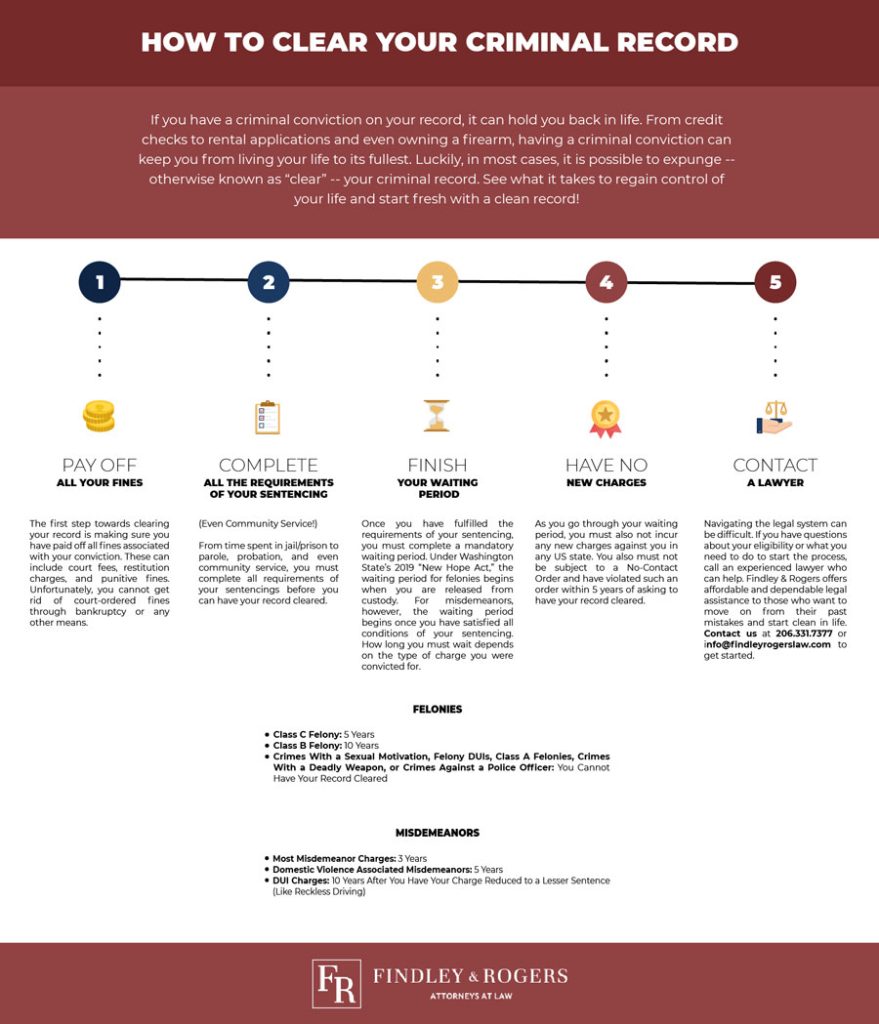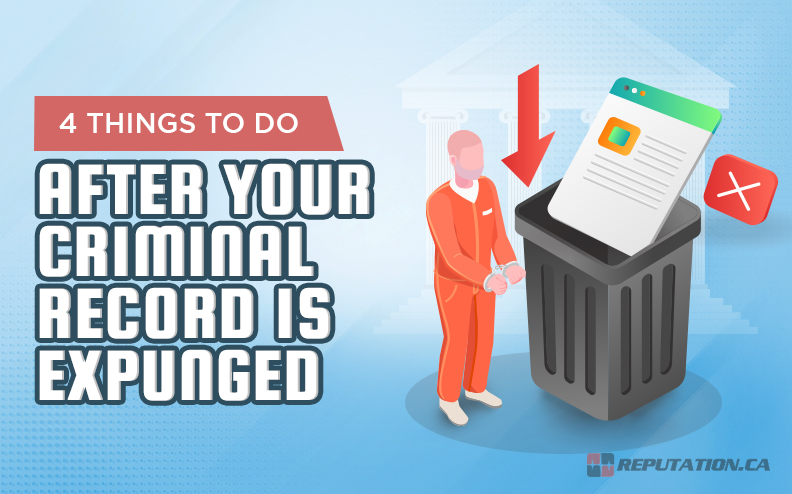Contents
Have you ever wondered about the cost of getting your record expunged? If so, you’ve come to the right place. In this article, we will explore and break down the expenses associated with getting your record expunged. Whether you’re curious about the process or considering taking this step yourself, understanding the costs involved is essential. So, let’s jump right in and discover the details of “The Cost of Getting Your Record Expunged.”
Factors Affecting the Cost of Record Expungement
Type of Offense
The first factor that affects the cost of record expungement is the type of offense for which the individual is seeking expungement. Certain offenses may be more complex and time-consuming to expunge, requiring additional legal work and a higher cost. For example, expunging a minor misdemeanor such as a traffic violation may be less expensive compared to expunging a felony conviction.
Number of Offenses
The number of offenses on an individual’s record is also a significant factor in determining the cost of expungement. Expunging multiple offenses will typically require more paperwork, research, and court fees, which can increase the overall cost. It’s important to note that expunging multiple offenses may also be subject to additional eligibility requirements, further impacting the cost.
Jurisdiction
Another aspect influencing the cost of record expungement is the jurisdiction in which the expungement process takes place. Different states and even different counties within a state may have varying laws and regulations surrounding expungement. These jurisdictional differences can result in variations in filing fees, attorney fees, and other associated costs. It’s crucial to consult with a local attorney or conduct thorough research to understand the specific costs for your jurisdiction.
Severity of Offense
The severity of the offense in question can also impact the cost of expungement. More serious offenses typically involve more complexities in the expungement process, including increased legal work and a higher likelihood of opposition from prosecutors or other involved parties. Expunging a misdemeanor may be less costly than expunging a felony conviction due to the additional steps required for more severe offenses.
Age at the Time of Offense
The age at which the offense was committed can also affect the cost of record expungement. In some jurisdictions, juvenile offenses may have different expungement requirements and procedures compared to adult offenses. Expunging a juvenile record may involve additional steps, such as demonstrating rehabilitation efforts or meeting specific criteria. These additional requirements can contribute to the overall cost of the expungement process.
Legal Fees
Expunging a record typically involves engaging the services of an attorney. Various factors can influence the legal fees associated with record expungement.
Attorney Fees
The primary cost associated with record expungement is typically the attorney’s fees. The attorney’s level of experience, reputation, and success rate in handling expungement cases can impact the cost. Generally, more experienced and highly regarded attorneys may charge higher fees. It is essential to research and compare the fees of different attorneys to find one that fits your budget while also demonstrating the necessary expertise in expungement cases.

Hourly Rates
Some attorneys charge an hourly rate for record expungement cases. This means that the final cost depends on the amount of time the attorney spends on the case. Hourly rates can vary significantly depending on the attorney’s experience, specialization, and geographic location. It’s important to ask about the attorney’s hourly rate and obtain an estimate of how many hours the case is expected to take to gauge the potential total cost.
Fixed Flat Fees
In addition to hourly rates, some attorneys offer fixed flat fees for record expungement cases. These fees are predetermined and agreed upon upfront, regardless of the time the attorney spends on the case. Fixed flat fees provide a clearer understanding of the cost from the beginning and can be preferable for individuals on a strict budget. However, it’s essential to clarify what expenses are included in the flat fee and ensure it covers all necessary aspects of the expungement process.
Additional Costs
Beyond attorney fees, there may be additional costs associated with legal services during record expungement. These costs can include expenses related to court filings, obtaining necessary documents or evidence, hiring expert witnesses, or other unforeseen expenses. It’s crucial to discuss potential additional costs with your attorney beforehand to avoid any financial surprises during the process.
Filing Fees
When pursuing record expungement, individuals are typically required to pay various filing fees. These fees cover the administrative costs associated with initiating the expungement process and ultimately requesting the court’s decision.

Court Filing Fees
Court filing fees refer to the costs imposed by the court system when initiating the record expungement process. The specific amount may vary depending on the jurisdiction and the type of offense being expunged. It’s important to research the court filing fees applicable to your case and budget accordingly. Keep in mind that these fees are usually non-refundable, regardless of the outcome of the expungement petition.
Expungement Petition Fees
In some jurisdictions, there may be additional fees specifically for filing an expungement petition. These fees are paid to the court to cover the expenses associated with processing the petition. Similar to court filing fees, expungement petition fees vary depending on the jurisdiction and the complexity of the case. Researching and understanding these fees is crucial to ensure accurate financial planning before pursuing record expungement.
Background Check Fees
Background checks are a common practice for employers, landlords, and educational institutions when making important decisions about individuals’ suitability for employment, housing, or education. Expunging a record does not automatically erase all traces of the offense from background checks. Therefore, individuals seeking expungement may need to consider potential background check fees as part of the overall cost.
Employment Background Checks
When applying for a job, many employers conduct background checks to assess an applicant’s trustworthiness and suitability for the position. Expunged records may still be visible on some background checks, depending on the employer’s search methods and the laws governing the disclosure of expunged records. Some employers may charge applicants for the cost of conducting a background check, which could be an additional expense to consider.

Housing Background Checks
Similar to employment background checks, landlords often perform background checks on potential tenants to evaluate their reliability, criminal history, and overall suitability for a rental property. Although expunged records should not appear on most background checks, there can be exceptions or situations where the expunged offense is disclosed. In such cases, the individual seeking expungement may need to incur the cost of background checks conducted by landlords or property management companies.
Educational Background Checks
Certain educational institutions may conduct background checks on prospective students or individuals applying for specific programs or positions within the institution. Expunged records may not always be completely invisible on such background checks, depending on the policies and procedures of the educational institution. Prospective students seeking expungement should be aware of any potential background check fees involved in the educational application process.
Identity Theft Protection Services
As individuals navigate the process of record expungement, they may encounter concerns about the security of their personal information and potential vulnerability to identity theft. Identity theft protection services can provide peace of mind during and after the expungement process, but they come with additional costs.
Monitoring and Restoration
Identity theft protection services often include continuous monitoring of personal information, such as social security numbers, credit card numbers, and addresses, to identify any suspicious activities that may indicate identity theft. Additionally, these services may offer support and assistance in restoring one’s identity in case of fraudulent activity. Investing in monitoring and restoration services can provide reassurance but should be considered when calculating the overall cost of expungement.

Credit and Identity Monitoring
Credit and identity monitoring services enable individuals to stay informed about changes or potential compromises to their credit reports and personal information. These services often involve real-time alerts and regular credit report updates, allowing individuals to act quickly in case of any unauthorized activities. While credit and identity monitoring services may require a subscription or monthly fee, they offer ongoing protection and vigilance against potential identity theft risks.
Identity Theft Insurance
Some identity theft protection services include identity theft insurance as part of their comprehensive packages. This insurance can provide financial coverage for expenses incurred due to identity theft, such as legal fees, lost wages, and fraudulent charges. While the necessity of identity theft insurance may vary depending on an individual’s circumstances, it is an additional cost to consider when evaluating the overall cost of record expungement.
Travel and Transportation Expenses
Throughout the record expungement process, individuals may need to attend various legal consultations or court appearances. These obligations can result in travel and transportation expenses that should be considered when budgeting for the cost of expungement.
Legal Consultations
Consultations with attorneys are an essential part of the expungement process, allowing individuals to discuss their case, understand the requirements, and receive professional advice. Depending on the location of the attorney’s office, individuals may need to account for the cost of traveling to and from these consultations. These expenses can include fuel costs, public transportation fees, or parking fees, which can accumulate over the duration of the expungement process.
Court Appearances
In some instances, individuals seeking record expungement may be required to attend court hearings or other legal proceedings related to their case. Traveling to the courthouse and attending these appearances may involve costs such as transportation fees, parking fees, or even accommodation expenses if the courthouse is far from the individual’s residence. Considering the potential frequency of court appearances and the associated travel costs is crucial to have an accurate estimate of the overall expenses.
Lost Wages
Undergoing the record expungement process may require individuals to take time off work for various reasons, potentially resulting in lost wages. It’s essential to consider this financial impact when calculating the overall cost of expungement.
Time Off Work
Attending legal consultations, court appearances, and other obligations related to the expungement process may necessitate taking time off work. Whether the absence is paid or unpaid, each day away from work can result in a loss of income. Before pursuing record expungement, individuals should assess the potential number of hours or days they might need to take off work to fulfill their obligations. This information can help estimate the financial impact of lost wages on the overall cost of expungement.
Missed Opportunities
In addition to the immediate impact of lost wages from time off work, individuals should also consider the potential missed opportunities that could result from their absence. Missing work-related events, promotional opportunities, or bonuses due to the expungement process can have long-term financial implications. Although difficult to quantify, factoring in the possible missed opportunities can contribute to a more comprehensive understanding of the total cost of record expungement.
Additional Costs
Several other expenses may arise during the record expungement process, depending on individual circumstances and the specific requirements of the case.
Documentary Evidence Fees
Obtaining documentary evidence can be essential when presenting a case for record expungement. These documents may include court records, police reports, character references, or other relevant information. Fees associated with obtaining these documents, such as court document fees or copy fees, should be considered as part of the overall cost of expungement.
Notary Public Fees
Certain documents involved in the expungement process may require notarization. Notary public fees can vary depending on the location and the number of documents needing notarization. It’s important to research local notary public fees and determine the approximate number of notarized documents required to estimate this potential cost accurately.
Postage and Mailing Costs
Throughout the expungement process, individuals may need to send various documents, petitions, or correspondence to attorneys, courts, or other parties involved. Postage fees and mailing costs for these documents should be taken into account when assessing the overall expenses. While individual postage costs may seem insignificant, the cumulative effect of frequent mailings can be significant, especially if multiple sets of documents need to be sent.
Alternatives to Expungement
In some cases, individuals may find that expungement is not a feasible or cost-effective option. Understanding alternative options can provide valuable insight and help individuals make an informed decision regarding their records.
Record Sealing
Record sealing is an alternative to expungement that allows individuals to make their records inaccessible to the general public, including employers, landlords, and educational institutions. Once sealed, these records are no longer visible in standard background checks. However, certain authorized parties, such as law enforcement agencies or government entities, may still have access to the sealed records. The cost of record sealing may vary depending on jurisdiction and individual circumstances.
Criminal Pardons
Obtaining a criminal pardon is another alternative to expungement, primarily for individuals seeking forgiveness for their convictions rather than erasing them entirely. A criminal pardon does not remove the record but rather offers official forgiveness and signifies that the individual has been rehabilitated. The cost associated with applying for a criminal pardon can vary depending on the jurisdiction and the complexity of the case. Researching the specific requirements and fees for obtaining a criminal pardon is crucial before deciding on this alternative.
Conclusion
The cost of getting your record expunged varies based on several factors. The type and number of offenses, the jurisdiction, the severity of the offense, and the age at the time of the offense all contribute to the overall cost. Legal fees, filing fees, background check fees, identity theft protection services, travel and transportation expenses, lost wages, and additional costs further impact the financial investment required for record expungement. Considering alternatives to expungement, such as record sealing or criminal pardons, can also provide individuals with options that suit their needs and budget. Understanding the potential expenses associated with record expungement empowers individuals to make informed decisions and navigate the process effectively.












